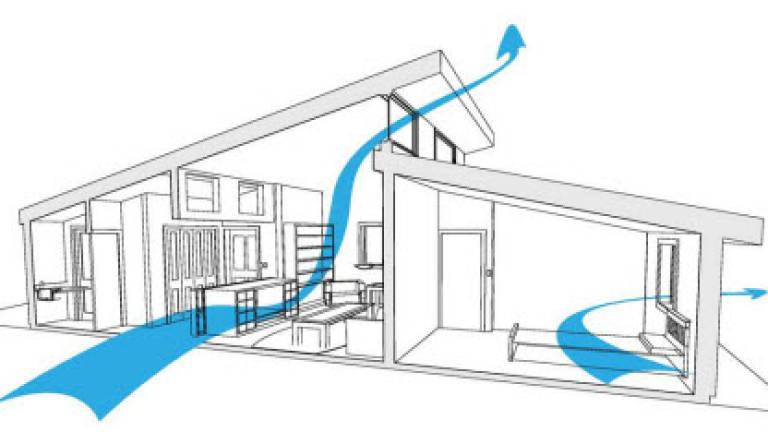Classical Feng Shui - Grounded in good chi


BY NOW you should be aware that good and strong Earth qi (or energy) is an essential component to good health and great feng shui.
If you have read some of my earlier articles on Earth qi, you will know that while we cannot see this qi, we can look for its manifestations.
Mountain ranges carry Earth qi from the highlands to the lowlands. Thus, flat lowland areas near mountain ranges are likely to have strong Earth qi.
Also, having mountains or hills on three sides of a dwelling helps prevent qi from being blown away. Therefore, add mountains or hills to your home selection criteria.
The presence of thriving flora such as lush green vegetation, and fauna, such as birds and squirrels, indicates the presence of strong Earth qi.
Water, in the form of a lake or a slow moving river, in the vicinity can also help to accumulate the qi.
If you live in an area with all of the above criteria, you are likely to be surrounded by strong Earth qi.
However, this Earth qi must get into your house before it can be beneficial to you.
Modern houses are not very good at doing this.
If you look at older houses, you will notice that most, if not all of them, have ventilation holes, airwells, and even courtyards to improve circulation.
Do you remember the science rule that warm air rises, while cool air sinks?
The heat generated in the home warms the air, causing it to rise.
In older houses, hot air escapes through the airwell or courtyard, creating a low pressure region in the house’s lower floors.
Cool air laden with strong Earth qi then gets pulled into the house.
I learnt recently that wind blowing across the tops of roofs helps the process, by creating a low pressure region on the outside of the airwell and courtyard, helping to suck the warm air out of the house. This also helps to bring in strong qi from the outside.
Modern houses, however, are quite ‘airtight’, with air conditioners to keep things cool, and with windows and doors kept closed to keep out the dust.
How do you know if your house is adequately ventilated?
There is a simply method that – though not scientific – is still effective. Just open all the doors and windows in your house for 30 to 45 minutes. If the interior of the house still feels stuffy and you still feel sticky, then it is likely not ventilated enough.
A client of mine once unfortunately purchased a house without airwells. He then installed a network of extractors and ducting to draw air out mechanically through the ceiling.
If properly designed, this will usually work, but the disadvantage is that the motors that draw the stale air out will eventually fail, and have to be replaced.
An audience member at one of my recent talks lamented that most of us are not lucky enough to live on sloping land surrounded by mountains on three side, water on the other, and with thriving flora and fauna all around.
I agree. Most of us live on flat land, with hardly any mountains in sight. Even when they are there, they are usually too far away to play their role.
Here is a secret: most so-called flat land is not completely flat. There is usually some undulation. Look for a rise, or protrusion, in a flat area. The rise in the land indicates the presence of strong Earth qi.
You can also look for the presence of water in the form of a lake, or a slow moving winding river. Bodies of water help to retain qi. So do not despair if there are no mountains nearby.
Finally, make sure that your house is designed in such a way that the Earth qi gets in easily, and ventilates the house properly.
Henry Fong is an electronic engineer by qualification and he approaches feng shui with the same analytical and investigative approach he uses in his training. Write to him at lifestyle.henryfong@thesundaily.com.